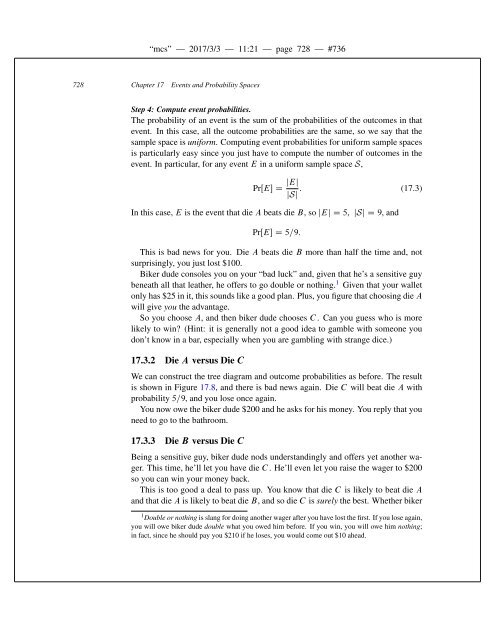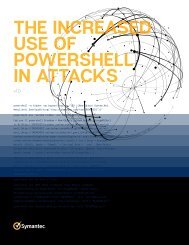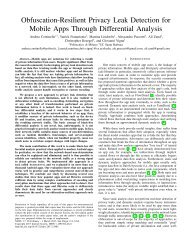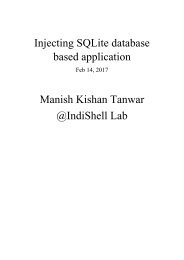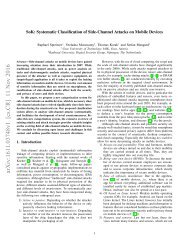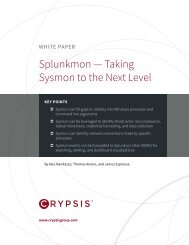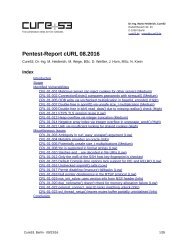Mathematics for Computer Science
e9ck2Ar
e9ck2Ar
You also want an ePaper? Increase the reach of your titles
YUMPU automatically turns print PDFs into web optimized ePapers that Google loves.
“mcs” — 2017/3/3 — 11:21 — page 728 — #736<br />
728<br />
Chapter 17<br />
Events and Probability Spaces<br />
Step 4: Compute event probabilities.<br />
The probability of an event is the sum of the probabilities of the outcomes in that<br />
event. In this case, all the outcome probabilities are the same, so we say that the<br />
sample space is uni<strong>for</strong>m. Computing event probabilities <strong>for</strong> uni<strong>for</strong>m sample spaces<br />
is particularly easy since you just have to compute the number of outcomes in the<br />
event. In particular, <strong>for</strong> any event E in a uni<strong>for</strong>m sample space S,<br />
PrŒE D jEj<br />
jSj : (17.3)<br />
In this case, E is the event that die A beats die B, so jEj D 5, jSj D 9, and<br />
PrŒE D 5=9:<br />
This is bad news <strong>for</strong> you. Die A beats die B more than half the time and, not<br />
surprisingly, you just lost $100.<br />
Biker dude consoles you on your “bad luck” and, given that he’s a sensitive guy<br />
beneath all that leather, he offers to go double or nothing. 1 Given that your wallet<br />
only has $25 in it, this sounds like a good plan. Plus, you figure that choosing die A<br />
will give you the advantage.<br />
So you choose A, and then biker dude chooses C . Can you guess who is more<br />
likely to win? (Hint: it is generally not a good idea to gamble with someone you<br />
don’t know in a bar, especially when you are gambling with strange dice.)<br />
17.3.2 Die A versus Die C<br />
We can construct the tree diagram and outcome probabilities as be<strong>for</strong>e. The result<br />
is shown in Figure 17.8, and there is bad news again. Die C will beat die A with<br />
probability 5=9, and you lose once again.<br />
You now owe the biker dude $200 and he asks <strong>for</strong> his money. You reply that you<br />
need to go to the bathroom.<br />
17.3.3 Die B versus Die C<br />
Being a sensitive guy, biker dude nods understandingly and offers yet another wager.<br />
This time, he’ll let you have die C . He’ll even let you raise the wager to $200<br />
so you can win your money back.<br />
This is too good a deal to pass up. You know that die C is likely to beat die A<br />
and that die A is likely to beat die B, and so die C is surely the best. Whether biker<br />
1 Double or nothing is slang <strong>for</strong> doing another wager after you have lost the first. If you lose again,<br />
you will owe biker dude double what you owed him be<strong>for</strong>e. If you win, you will owe him nothing;<br />
in fact, since he should pay you $210 if he loses, you would come out $10 ahead.


